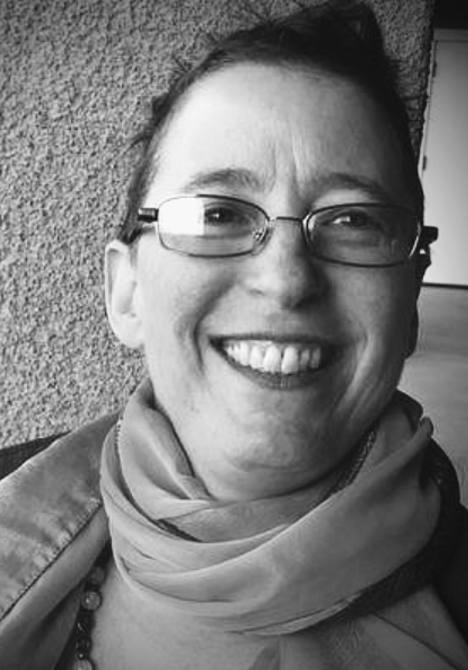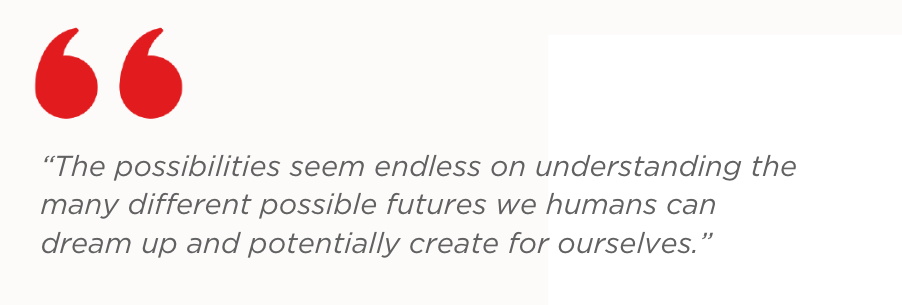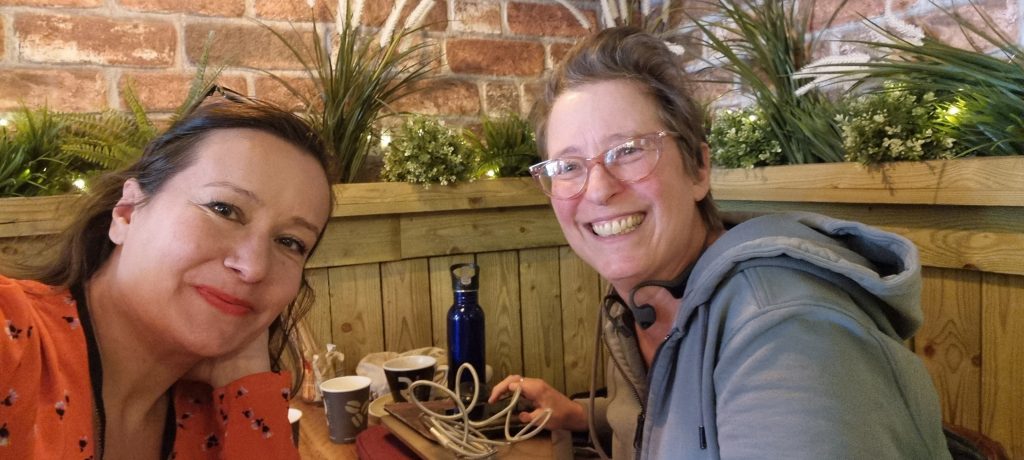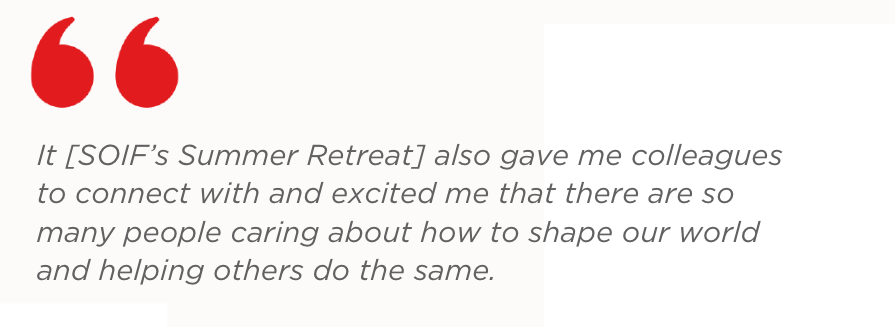
In this interview, Beth Barany shares lessons that futurists can take from fiction writing and also shares her insights from attending the SOIF summer foresight retreat. Beth is an award-winning novelist, book coach, podcaster, workshop leader, futurist and keynote speaker. She runs the podcast “How to Write The Future” and teaches science fiction and fantasy writers a holistic and robust approach on how to write, revise, and publish their novels on their own terms.
Beth also runs customised hands-on workshops to future-facing, bold organisations who want members to think more widely and act more imaginatively. She will be facilitating a webinar on Drafting Compelling Characters for your scenarios for the SOIF community. Details to be shared soon. You can pre-register by sharing your interest with Mudabbir Maajid via email: mudabbir@soif.org.uk

Question: What have you learnt in the last year about “how to write the future”?
Beth Barany: Even though I’ve been writing science fiction for six years (and fantasy for over 10) and reading both since childhood, and I knew intellectually that there were many futures to write about, I’ve been made aware of even more ways to write and think about the future.
While not a complete surprise, over the last year I’ve gained access to more versions of possible futures, especially from the younger generations, from multiple Wisdom traditions, and from different academic disciples. I have also been exposed to more ways of looking at time and location from different cultural traditions.
The possibilities seem endless on understanding the many different possible futures we humans can dream up and potentially create for ourselves.

Question: What three lessons can futurists learn from fiction writing tools?
Beth Barany: As a working novelist and fiction writing teacher, I could share with you much more than three! For the purposes of our interview, I’ll hone in on the ones that I notice futurists could benefit from as a complement of their current training. All three have to do with creating characters for one’s scenarios or stories.
Get personal
Hone in on the lived experience of an individual and highlight their personal power to create change in their lives.
Show them in their daily lives via their actions, dialogue with others, and their inner thoughts and feelings. Make their perspective unique to them by thinking of their cultural and familial influences.
The most powerful stories are ones of transformation and are told from a singular point of view because ironically the microcosm reflects the macrocosm. Also, because change happens on the individual level with individual decisions that can impact many people and institutions.
Show the world’s artefacts from your character’s perspective.
How does your character use and interact with your futuristic aspect?
How has it integrated into their daily lives?
How does it feel to use or interact with the artefact?
Also show the artefact in action from other characters’ perspectives.
Connect the reader to the character by making us care about what they care about.
You do that by giving the character an important-to-them goal, why that goal is important, and what is at stake if they don’t achieve this goal.
Questions to answer:
- What do they care about achieving?
- Why do they care about it?
- What’s at stake if they don’t achieve it?
- What gets them out of bed in the morning?

Question: What difference did attending the retreat last year make to your practice as a fiction writer / futurist?
Beth Barany: A huge difference. In many ways, attending the retreat last year helped me feel no longer so alone.
Being in the room with so many foresight practitioners from around the world gave me so much hope.
I wasn’t the only one thinking about the hard problems of humanity’s future as there were so many people thinking about them too. Also, being presented with different models and tools opened me up to methods of processes of thinking in groups that I found really fun and useful. And challenged my solo way of working.
The retreat strengthened my commitment to pursuing my stories and gave me a wider view of how to understand ways to think about, talk and write about the future world I am playing in. It also gave me colleagues to connect with and excited me that there are so many people caring about how to shape our world and helping others do the same.
A year out from the retreat, I feel like I am still opening up to all the possibilities in my practice as a fiction writer / futurist and that excites me. My journey is beginning anew and even deepening and maturing.
To engage with and hire Beth, contact her via her site: BethBarany.com.
SOIF’s next strategic foresight virtual course begins this October. Register by August 25th to save GBP 500. Learn more.
Useful resources:
How to write the future podcast
